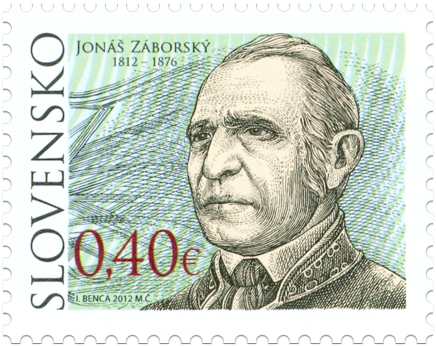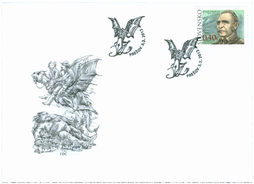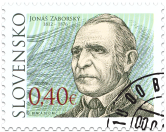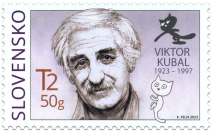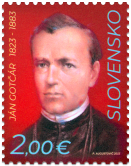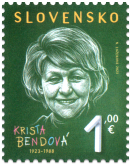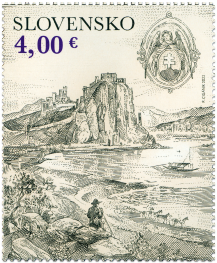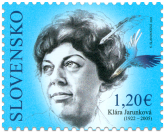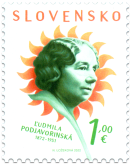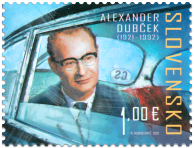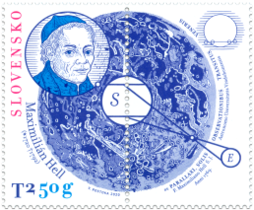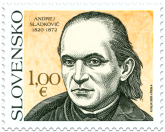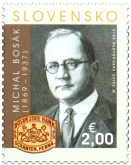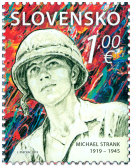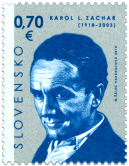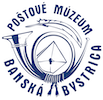511 Date of issue
03.02.2012 Face value
0.40 € Sell price
0.40 €
Jonáš Záborský represented a strange phenomenon of the ideological, political and creative characteristics in the Slovak public life in the mid-19th century.
He was born in a small noble family in Záborie near Martin on 3. February 1812. He studied at several secondary grammar schools, briefly attended the academy of law and eventually he decided to study theology and graduated in 1834. He became an Evangelic priest, but under pressure of the existential problems, he converted to Catholicism in 1842 and then he worked as a Catholic priest, first for the Germans in Košice and later in Župčany near Prešov. There he also died on 23. January 1876 during a cholera epidemic.
Ideologically, he belonged to the so-called “old conservatives”, who fundamentally rejected Štúr’s codification of the Slovak standard language and his national political agenda. After the suppression of the Revolution 1848 – 1849, he accepted the offer to be an editor of the governmental “Slovenské noviny” (Slovak newspaper) (1850 – 1853). This newspaper was not published in standard Slovak, but in strongly Slovakized Czech, the so-called Czechoslovak language. Due to his conflicts with censorship, he left the newspaper and returned to the vocation as a priest. As a convert with significantly different opinions on the Slovak issue, he did not gain trust among representatives of different movements of the Slovak politics of that time.
The greatest contribution of Jonáš Záborský to Slovak culture is his literary work and some interesting contributions from history. He entered the world of literature shortly after he had finished his theological studies with classicist fables and collections of poetry. His work showed elements of classicism, romanticism and starting realism, but in highly extreme positions. The most important part of his work is a picaresque, grotesque prose, in which he deals with the problem of contrast of abstract standards and the reality of life. He often parodied and caricatured reality, so his work is sometimes of pamphlet character. He wrote a number of difficult plays, which were difficult to be staged. These plays dealt mainly with early history of the Slovaks, Serbs as well as history of Russia after the death of Ivan the Terrible (the so-called “Lžidimitriády”). His most important historical works include extensive “Dejiny Uhorského kráľovstva od začiatku do čias Žigmundových” (History of the Kingdom of Hungary from the beginning to the times of Sigismund).
Anton Hrnko
Similar products
791 Date of issue
20.03.2023
786 Date of issue
17.02.2023
785 Date of issue
27.01.2023
769 Date of issue
01.07.2022
764 Date of issue
28.04.2022
763 Date of issue
08.04.2022
754 Date of issue
26.11.2021
712 Date of issue
13.05.2020
710 Date of issue
30.03.2020
703 Date of issue
22.11.2019
678 Date of issue
01.03.2019
658 Date of issue
14.03.2018
© 2024 POFIS - Postal philatelic service. All rights reserved

